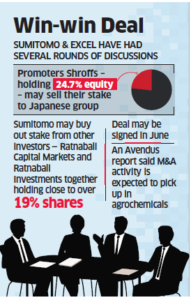 Markets regulator Sebi today asked listed companies to disseminate cumulative impact of audit qualifications in a separate format along with the annual audited financial results to the stock exchanges.
Markets regulator Sebi today asked listed companies to disseminate cumulative impact of audit qualifications in a separate format along with the annual audited financial results to the stock exchanges.
Besides, the management of a company would be required to explain its view about audit qualifications.
The new framework would ensure that the impact of audit qualifications are clearly communicated by the companies concerned to their investors in a timely manner apart from streamlining the whole process.
Sebi decided to have the new system on audit qualifications after extensive discussions with its advisory committees, Institute of Chartered Accountants of India (ICAI), stock exchanges and industry bodies.
Now, listed entities will be required to disclose the cumulative impact of all audit qualifications on relevant financial items in a separate form called ‘Statement on Impact of Audit Qualifications’ instead of the present form.
Such disclosures will have to be made in a tabular form, along with annual audited financial results filed in compliance with the listing regulations.
The new mechanism will be applicable for all the annual audited standalone/consolidated financial results, submitted by the listed entities for the period ended March 31, 2016 and thereafter.
The listed entity will have to furnish a declaration in case there are no audit qualifications.
In case of audit reports with modified opinion, a statement showing impact of audit qualifications will be filed with the stock exchanges in a format specified by the regulator, Sebi said in a circular today.
Issuing a format for ‘Statement on Impact of Audit Qualifications’ for the financial year, Sebi said that companies will have to disclose net profit, networth, turnover, total expenditure, earning per share, total assets and liabilities.
Besides, the firms will have to make submission about details, types, frequency of audit qualification. The management will have the right to give its views on the audit qualification.
Also, the management of the listed entity will have explain its views on the audit qualifications.
“Where the impact of the audit qualification is not quantified by the auditor, the management shall make an estimate. In case the management is unable to make an estimate, it shall provide reasons for the same. In both the scenarios, the auditor shall review and give the comments,” Sebi noted.







The department has begun publishing the names of tax defaulters in leading national dailies since last year and has named 67 such defaulters from across the country till now with their vital details like addresses, contacts, PAN card number and shareholders in case of companies.
The earlier exercise was restricted to people with huge defaults to the tune of about Rs 20-30 crore but the new measure will bring to the fore those names who have defaulted a tax of Rs 1 crore or more. “It has been decided to ‘name and shame’ all category of taxpayers including personal and corporate taxpayers who have a default of Rs 1 crore and above by March, 31 which is the end of 2016-17 financial year.
Source: http://indianexpress.com/article/business/economy/it-dept-to-name-and-shame-crorepati-defaulters-this-fiscal-2817347/#sthash.jCduzRT8.dpuf